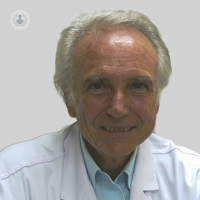The arterial hypertension, a preventable threat
Written by:The heart pumps the blood to a certain pressure so that it can reach, through the arteries, to all the corners of our organism. When that pressure is excessive we talk about Hypertension (HTA).

The increase in pressure damages the walls of the arteries and forces the heart to excessive and useless work. As a result, the arteries deteriorate, harden, narrow and can become completely closed so that the arrival of blood to many organs such as brain, heart or kidneys, can be severely compromised.
The heart is exhausted by the excess of work and by the deterioration of the arteries that nourish it: the coronaries. Thus arise complications such as angina pectoris, myocardial infarction, heart failure, arrhythmias, stroke, kidney failure or lack of watering in the legs. When in the same patient, in addition to HTA other risk factors coexist, such as smoking, high cholesterol, diabetes, obesity or sedentary lifestyle, the situation described is much worse.
In 5-10% of patients, hypertension is a consequence of another disease, often treatable, with which healing is possible ( secondary HT ). In the rest, the cause is not identifiable ( essential HTA ) and in them we can control their blood pressure figures and avoid complications in large part.
Diagnosis
For years, most people with hypertension are very well so they do not seek medical help. HTA is almost always diagnosed casually during a medical examination for other reasons. In some cases headaches, bleeding from the nose or hemorrhages in the conjunctiva are what allow the diagnosis of hypertension.
With the passage of time the arrival of complications of HBP , with difficulty breathing, chest pains, palpitations, stroke, pain in the calves when walking, among many others, make the patient go to the doctor. Although it is never too late, a magnificent time has been lost in which many of these symptoms could have been avoided.
Any person with direct family members who have suffered from hypertension, heart or brain disease, and especially if they are smokers, are overweight, sedentary or have high blood glucose or cholesterol, their TA should be measured periodically. Even without this background, you should measure it at least every 4 or 5 years after 40 and annually above 60.
Treatment
In all cases you must improve your life habits. You should stop smoking, exercise regularly and exercise your diet, increasing the consumption of legumes, fruits, vegetables, fish, lean meats, poultry without skin, olive oil or nuts, trying to normalize your weight and waist perimeter.
The prescribed medication must be taken on a regular basis. It is good to measure the AT in your own home with automatic devices but not obsess over it and change the medication moment by moment. The TA is out of control, with frequent and severe ups and downs, when the medication is not taken on a regular basis. In case of doubt you should consult your doctor.
HTA is a serious threat to your health, easy to diagnose and control in most cases. Do not wait to have symptoms to monitor it. It is a chronic disease that requires prolonged treatment. Well controlled and detected in time, your prognosis is excellent.


